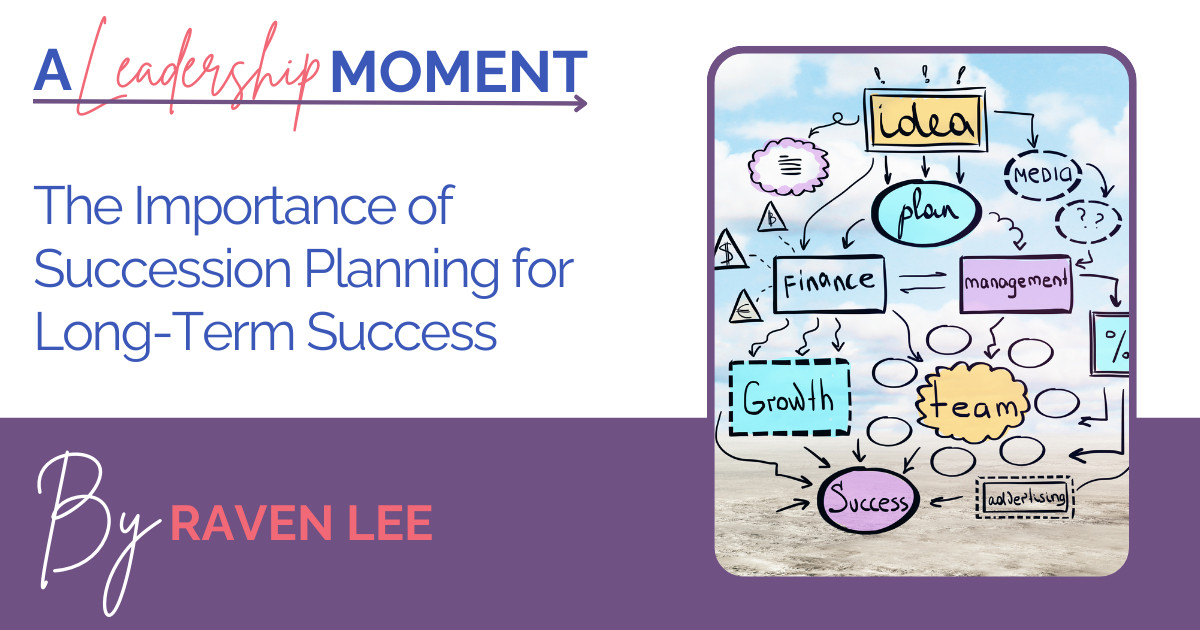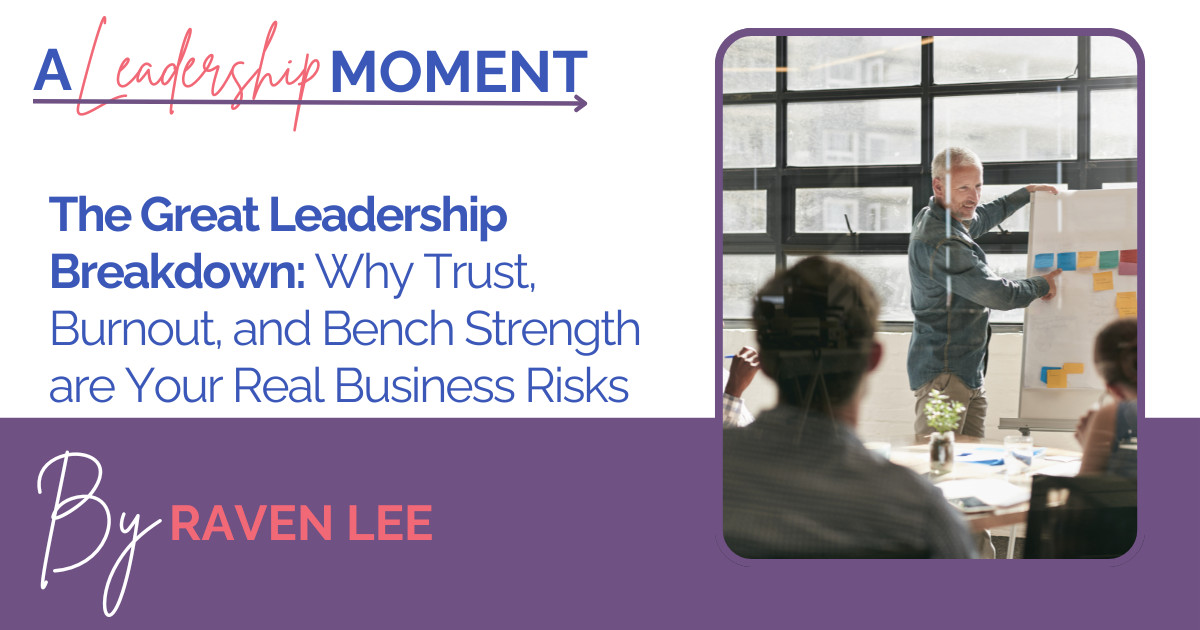
In the latest installment of the Toxic Leadership Series, the focus is on a common yet damaging behavior: leaders taking credit for someone else's work. This toxic habit not only erodes trust and taints collaboration within teams but also undermines a leader's effectiveness. Research shows that leaders who share credit with their team are rated more effective, whereas those who consistently claim credit diminish their leadership credibility and foster a toxic work environment.
From an ethical standpoint, appropriating credit violates core principles of honesty and integrity, which are essential for trustworthy leadership. Such behavior sends a damaging message that ethical standards are flexible, often leading to ethical compromise and diminished trust within teams. This breach of integrity impacts employee morale and risks creating a culture where ethical behavior takes a backseat to personal gain.
The negative effects on employee wellbeing cannot be overstated. Experiencing the theft of recognition can lead to feelings of demoralization, anger, and perceived unfairness, potentially escalating to stress and burnout. To counteract this, leaders must openly recognize and credit their team members, foster a culture of inclusivity, and lead by example, adhering to high ethical standards. By doing so, organizations can sustain a healthy and positive workplace culture, benefiting both individual employees and the organization as a whole.
Read more...
Jane's experience highlights the critical issue of empathy lacking in leadership. Transitioning to a new team, she was initially optimistic but found herself increasingly disheartened as her leader, David, showed little concern for the team's personal experiences. The absence of emotional engagement starkly contrasted with her passion for work, underscoring how a leader's indifference can affect employee morale and organizational success.
Empathy is essential for fostering a supportive and productive work environment. Without it, leaders can neglect employee emotions, leading to decreased job satisfaction and higher turnover. Organizations suffer as a disengaged workforce impacts productivity and the bottom line. Understanding these dynamics can encourage employers to implement feedback channels, focus on professional development, and maintain self-care to navigate leadership that lacks empathy.
However, improvement is possible with self-awareness and active listening. Leaders can transform by stepping out of self-centric mindsets and truly understanding their team's perspectives. Building these skills not only improves the trust and morale within the team but ultimately contributes to a more dynamic and successful organization. As leaders seek to cultivate empathy, they lay the groundwork for healthier workplace environments and long-term organizational growth.
Read more...
Nurturing emerging leaders has become an imperative strategy for sustainable growth and long-term success. The ability to identify, develop, and empower individuals with leadership potential is a crucial factor that sets successful organizations apart. However, in the 2022 Russell Reynolds Associate’s Global Leadership Monitor, a staggering 72% of surveyed leaders identified the availability of key talent as a top pressing issue. Of particular concern are the next-generation leaders, who not only form a significant retention risk for organizations but also contribute to a potential succession gap. Even more alarming is that out of the 72% of leaders who stated the availability of talent as a top issue, 59% acknowledged being ill-equipped to address this challenge.
This same study further highlighted an increase in senior-level turnover, making next-generation leaders an important part of business continuity strategies. The willingness of next-generation leaders to leave their current organization for the right opportunity has heightened organizational talent risks. Despite these challenges, the prospect of retaining next-generational leaders is not lost, as transparent career advancement and a clear path to senior roles can be the solution. There is an urgent need to develop effective strategies for nurturing the growth and retention of next-generation leaders. In this comprehensive guide, we delve into proven approaches that empower your company to foster the growth of next-generation leaders.
Prioritize Leadership Development
Leadership development is a cornerstone of organizational growth, enabling companies to prepare for the future while ensuring that they have the right leadership talent in place. Companies, often constrained by limited resources, must strategically allocate their efforts to nurturing leaders who can drive innovation, navigate challenges, and guide their teams to success. Leadership development must be consistently prioritized as a business strategy to ensure a thriving talent pipeline capable of meeting future business needs.
Identify Leadership Potential
To embark on a journey of nurturing next-generation leaders, companies must accurately identify individuals who possess the potential to excel in leadership roles. Begin by conducting thorough talent assessments to identify the skills, strengths, and areas of development for each next-generation leader. This entails a comprehensive evaluation of their skills, traits, and past performance within the organization. Look for qualities such as learning agility (or the ability to apply previous knowledge gained successfully to new situations), emotional intelligence, critical thinking, adaptability, effective communication, and the ability to foster collaboration.
Encourage Transparent Career Conversations
Foster a culture that encourages regular development discussions. We like to call these career conversations. They have also been labeled growth conversations. During these conversations, help your next-generation leader see a clear path for career advancement and succession into a senior leadership role. While you cannot promise a promotion, you can lay a foundation for what it will take for them to hit their career goals within your organization. This can be instrumental in retaining next-generation leaders. By offering a transparent framework for growth, companies can effectively show commitment to their employees' career progression.
Tailor Leadership Development Plans
Once areas of strength and areas for improvement are identified, craft personalized development plans. By doing so you recognize that leadership journeys are unique. Employees will appreciate tailored leadership development plans that will meet their specific needs. The development plan should encompass a combination of interactive workshops, personalized mentoring, experiential learning opportunities, and access to resources that align with the individual's career aspirations.
Promote a Culture of Continuous Learning
Leadership development thrives in an environment that prioritizes continuous learning. Encourage next-generation leaders to take ownership of their growth by engaging in self-directed learning, attending industry events, and participating in webinars and seminars. This approach not only enhances their skills but also keeps them attuned to emerging trends in leadership.
Effective Executive Coaching
The power of effective executive coaching cannot be overstated. A skilled executive coach provides personalized guidance, constructive feedback, and a supportive platform for leaders to refine their strengths and address areas of improvement. This partnership expedites the development process and equips next-generation leaders to address intricate business challenges.
Create Leadership Opportunities
Next-generation leaders require opportunities to apply their skills and assume leadership roles. Assign them to cross-functional projects, entrust them with team leadership responsibilities, and facilitate interactions with senior management. These experiences enhance their confidence and provide a platform to demonstrate their capabilities.
Performance Feedback and Recognition
Frequent performance feedback is the bedrock of leadership development. Constructive feedback empowers next-generation leaders to gauge their progress, identify growth areas, and comprehend their impact on the organization. Additionally, acknowledging their accomplishments through formal channels instills a sense of pride and motivation.
Build a Supportive Network
Encourage next-generation leaders to cultivate a robust professional network, both internally and externally. Networking exposes them to diverse viewpoints, industry trends, and potential mentors. This network serves as a conduit for knowledge exchange and collaborative endeavors.
Measure and Adapt
Effective leadership development hinges on measurement and adaptation. Establish metrics that gauge the progress of next-generation leaders, including project execution success, team performance metrics, and feedback from peers and subordinates. Utilize these insights to fine-tune your strategies for optimal outcomes.
The Wrap Up
In an environment where talent is a competitive advantage, nurturing next-generation leaders is a strategic imperative. By implementing these strategies, organizations can foster a culture that values and cultivates leadership potential, ensuring sustained success and growth. Remember, investing in leadership development is an investment in the future.
If you are wondering how to package this all together into an integrated leadership development strategy, Raven Lee Consulting would love to support you. Schedule a consultation today and let’s see how we can increase your organization’s leadership capabilities.

Effective succession planning is a proactive strategy essential for organizations striving to maintain leadership continuity and stability. It involves more than just selecting a successor for senior executives; it's a strategic alignment of organizational goals with a robust talent pipeline to ensure smooth leadership transitions. This minimizes disruption, safeguards institutional knowledge, and maintains stakeholder confidence while preparing organizations for critical leadership changes.
To start, identify key leadership roles and the competencies required for success, then evaluate internal talent to pinpoint potential successors. Develop individualized growth plans to bridge competency gaps, emphasizing strategic thinking, cross-functional exposure, and communication skills. Cultivating an organizational pipeline ensures flexibility and preparedness for unforeseen departures by maintaining a pool of potential successors aligned with evolving business needs.
Moreover, succession planning should be dynamic, with continuous review and adjustment to stay aligned with industry trends and organizational changes. Foster a culture supporting leadership development at all levels through mentoring programs and training workshops. Transparent communication and regular evaluation of succession efforts are key to refining the strategy, celebrating successes, and nurturing an environment that rewards the development of future leaders.
Read more...
Succession planning is a vital strategy for ensuring organizational continuity and prosperity, focusing on preparing for seamless leadership transitions. By proactively identifying and developing individuals with exceptional promise, organizations align leadership development with their core values and strategic objectives. This forward-thinking approach mitigates the risk of disruption and helps maintain operational stability when senior executives depart.
An effective succession plan acts as a strategic shield against leadership voids and the chaos that can accompany abrupt transitions. Organizations that nurture potential successors not only ensure continuity but also prevent hasty decision-making in the absence of clear leadership paths. Through comprehensive development programs, aspiring leaders gain the skills and understanding necessary for a smooth transition to executive roles, thereby fostering sustained growth and innovation.
Beyond its stabilizing effect, succession planning fosters innovation by introducing fresh perspectives and leadership styles, thereby adapting to evolving market dynamics. This process not only secures organizational longevity but enhances employee morale by demonstrating a commitment to talent development and growth. Ultimately, succession planning serves as a catalyst for innovation, reinforcing a robust leadership pipeline and ensuring the organization’s future success.
Read more...






 I
I








